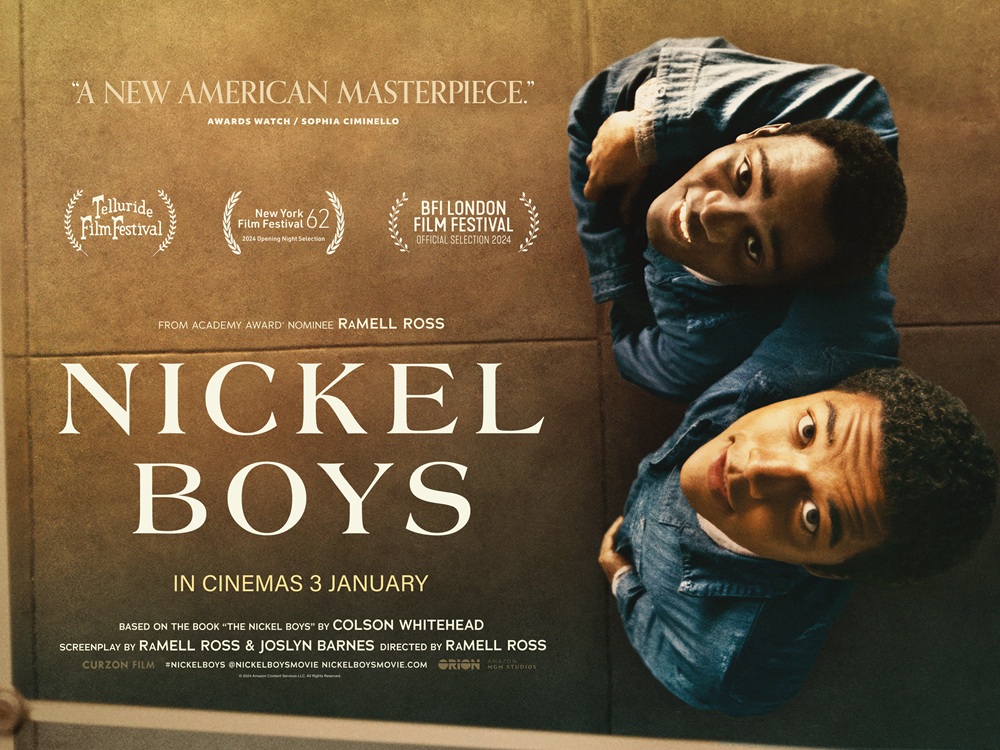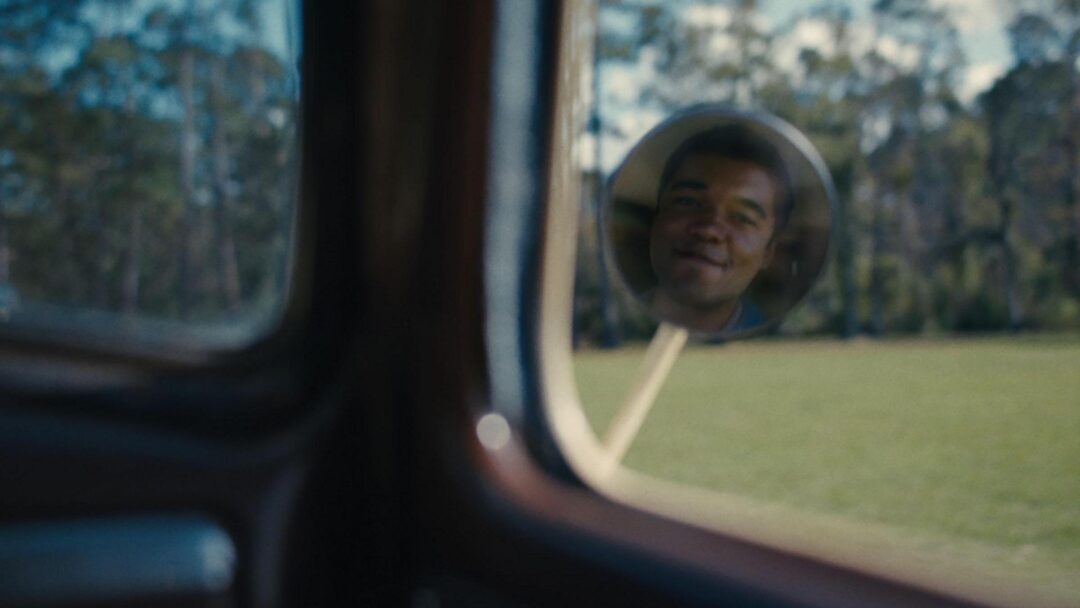The ceremony is imminent. The red carpet will fill. And Outposter Mhatt continues his heroic walk through this years main contenders. This time, he takes a look at Nickel Boys.
Nickel Boys
Directed by: RaMell Ross. Written by: RaMell Ross, Joslyn Barnes, Colson Whitehead (novel by). Starring: Ethan Herisse, Brandon Wilson, Aunjanue Ellis-Taylor, and Hamish Linklater.

A promising young man is wrongfully accused of a crime and is sentenced to the juvenile detention center called Nickel Academy, where he endures abuse, racism and makes a tenuous bond with a fellow inmate.
Elwood Curtis (Herisse) is an African American boy growing up in Tallahassee, Florida amidst the shifting racial realities of 1960’s America. Brought up by his loving grandmother, Hattie (Ellis-Taylor) he develops a strong moral compass which draws him to the civil rights movement.
Noticing the boy’s intellectual potential, his progressive high school teacher puts him up for a scholarship a new technical school which harkens a brighter future.
After accepting a ride from a stranger in a stolen car Elwood is charged and is sentenced a reform school for boys called Nickel Academy until he is eighteen.
Despite the brutal conditions, Elwood connects with an incarcerated boy named Turner (Wilson) whose friendship helps him endure institutionalized racism, violence, draconian discipline, and exploitation under the watch of Spencer (Linklater).
With nowhere else to turn, Elwood decides the only way to escape his reality is to expose the school in hoping the light of justice will bring it down.
Turning to the only people he thinks he can trust, Elwood begins to document the myriad of crimes that put him in the crosshairs of anybody to stands to lose or gain from his altruistic betrayal.
Overall, Nickel Boys is a very creative and well-made movie that is dragged down by its rather awful subject matter.
Director Ross effectively and cleverly uses the first-person camera technique to immerse us in Elwood’s world, shifting it only when another character becomes essential to the character’s story.

The cinematography respects this perspective, and it never comes across as gimmicky, although it does eventually create some confusion in the narrative. The story time jumps to the late 80’s and early 2000’s as Nickel is eventually exposed holding up a sad but necessary mirror to current headlines. A character points out that even if Nickel falls, it is just one of many, so the futility of the savior mentality is pertinent but also leaves us with what other choice?
I give the movie credit for its relatively straightforward look at a terrible situation while avoiding the saviourism the audience would expect. There are no end titles detailing the fallout. Instead, we are left with the cold hard legacy of what life is like for those enduring such irrational cruelty. Life goes on, pain is a part of memory and the only catharsis comes from the desperate belief it can’t happen again.
What You Should Or Shouldn’t Watch For:
Best Picture (*a noble choice and perhaps deliberately included to moralistically counter vapid crap like Wicked etc..)
Best Adapted Screenplay (**despite it being a bit of a slog, this is an extremely well-written, well-made piece)
Only recommended viewing for cinephiles and anyone lacking an insight into the commonplace horrors of the people who inhabit so-called correctional facilities. Here in Canada, these institutions are called Residential Schools and were backed by the government and various churches, which have also participated in decades of coverups of similar atrocities.






